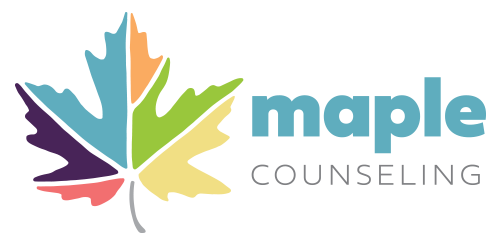
Personality and Wholeness in the Cultivation of Well-Being
With Daniel Siegel, MD
Description:
In this presentation we’ll explore an interpersonal neurobiology approach harnessing the insights of developmental neuroscience to illuminate how early temperament interweaves with attachment experiences in the cultivation of nine patterns of personality. Agency, bonding, and certainty are deep motivations that combine with an attentional orientation of inward, outward, and dyadic as both to form nine patterns of personality that shape the developmental pathways of our lives. These patterns mold how we experience and express emotion, focus our attention and find meaning in life, and even how we interact with others in our world. These nine patterns offer us ways of growing toward wholeness, a lifelong journey this “Patterns of Developmental Pathways” model helps see and shape in our inner and relational lives. Inspired by tens of thousands of narratives from the perspective of the Enneagram system of personality, this PDP framework helps us to gain insight into how we became who we are and offers practical steps into how we can intentionally open what may have become a prison of personality into a playground of possibility. Informing us about the individual-specific routes of overwhelm and burnout, this model of personality also provides strategies for reigniting passion and purpose in our lives as we regenerate and reignite with a renewed sense of resilience and meaning. This presentation offers approaches that can be effectively integrated into the clinical assessment and treatment plan of our client population.
Cost & Details:
Tuition: Virtual Program Early Bird rate: $39.00; $49.00 after October 30th.
In-Person Program: $89. Limited availability. All in-person participants will receive a hard copy of Daniel Siegel’s new book “Personality and Wholeness in Therapy”
Non-credit Fee: $10
You also have an opportunity to include a tax-deductable donation to The Maple Couseling Center.
Excluding the cost of the webinar, all amounts donated are tax deductible. The Maple Counseling Center is a tax exempt organization as described in Section 501(c)(3) of the Internal Revenue Code; EIN 95-2753118. Please consult with your tax advisor with any questions.
Class Schedule: Wednesday, November 13, 2024
8:30 AM
• Introduction to Interpersonal Neurobiology and Developmental Neuroscience
1. Overview of interpersonal neurobiology
• Importance of developmental neuroscience in understanding personality development
2. Early Temperament and Attachment Experiences
• How early temperament influences personality
• The role of attachment experiences in shaping personality
3. Nine Patterns of Personality
• Introduction to the nine patterns of personality
• Discussion of the three deep motivations: Agency, Bonding, and Certainty
• Examination of the attentional orientations: Inward, Outward, and Dyadic
4. Developmental Pathways and Personality Formation
• How the nine patterns shape developmental pathways
• Influence of personality patterns on emotions, attention, meaning, and interpersonal relationships
9:25 AM
• Break
9:35 AM
1. The Journey Towards Wholeness
• Understanding the concept of wholeness within the nine personality patterns
• Using the PDP model for personal growth and development
2. Enneagram System of Personality
• Introduction to the Enneagram as it relates to the PDP framework
• Analysis of narratives and personal stories in the context of the Enneagram
3. Addressing Overwhelm and Burnout
• Identifying routes of overwhelm and burnout through personality patterns
• Strategies for reigniting passion and purpose
4. Practical Applications in Clinical Practice
• Integrating the PDP model into clinical assessment and treatment plan
• Case examples and practical steps for clinicians working with client populations
5. Q & A Session – 15-minutes
Access: Online via Zoom OR In-Person. For Zoom, the link will be provided to you. Be sure to register using the email address that you use to login to zoom as the link will only work with the specific address you register with.
Attire: Dress comfortably.
Tech Requirements: You will need a stable internet connection and the most recent version of Zoom Client for Meetings (available free here).
Tech Courtesy: We want your experience to be positive, so please:
- Log-in to the session a few minutes early.
- Submit questions via the chat feature.
- Limit chat submissions to workshop topics only.
This webinar offers 2 hours of Continuing Education Credit for LMFTs, LCSWs, LPCCs, & LEPs and is appropriate for all mental health professionals.
Clicking the Register now button will take you into zoom to complete your enrollment and pay your fee. You will be asked to log in to Zoom. Be sure to add “noreply@zoom.com” to your email app’s trusted senders list to assure that confirmation and reminder emails go to your inbox.
You can also register by phone: 310.474.2505
Objectives:
In this interactive program, participants will learn how to:
1. Describe the interplay of temperament and attachment in the development of personality and human flourishing.
2. Identify nine Patterns of Developmental Pathways (PDPs) that help illuminate distinct growth-edges for lifelong development.
3. Explain how an individual’s insights into their own PDP and those of others can give powerful avenues for understanding life journeys and personal relationships and the many ways we can be at risk of burnout and stress.
4. Outline nine patterns of personality and how these emerge from early temperament and are intensified by non-secure attachment experience.
Presenter Bio:
Daniel Siegel, MD

Daniel Siegel, MD is the executive director of the Mindsight Institute and founding co-director of the Mindful Awareness Research Center at UCLA, where he was also Co-Principal Investigator of the Center for Culture, Brain and Development and clinical professor at the School of Medicine. An award-winning educator, he is a Distinguished Fellow of the American Psychiatric Association and recipient of several honorary fellowships. Dr. Siegel is also the Executive Director of the Mindsight Institute, an educational organization, which offers online learning and in-person seminars that focus on how the development of mindsight in individuals, families and communities can be enhanced by examining the interface of human relationships and basic biological processes. His psychotherapy practice includes children, adolescents, adults, couples, and families. drdansiegel.com.
Disclosure: The Lifespan Learning Institute and The Maple Counseling Center have implemented a process where everyone who is in a position to control the content of any educational activity must disclose any potentially relevant financial relationship with a commercial interest. The presenter listed above have been determined to be free of conflict for the purposes of this workshop.
Continuing Education Credit:
Continuing Education Credit: The Lifespan Learning Institute and Maple Counseling are cosponsors of this Continuing Education program.
CE Provider Approval Statement: Lifespan Learning Institute (Provider # 050085) is approved by the California Association of Marriage and FamilyTherapists to sponsor continuing education for LMFTs, LCSWs, LPCCs, & LEPs. Lifespan Learning Institute maintains responsibility for this program/course and its content.
Credit statement: Course meets the qualifications for 2 hours of continuing education credit for LMFT’s,LCSW’s, LPCC’s and LEP’s as required by the California Board of Behavioral Science.
Target Audience: This webinar is designed to enhance the skills of master’s level clinicians working with individuals, couples and groups, and will benefit most mental health professionals of all levels.
Course Completion Certificates: Awarded at the end of the course in exchange for a completed evaluation form. (Or successful completion of an online test and a completed evaluation form)
Communications: All pre-conference and post-conference communications will be via email or online. This includes but is not limited to: Registration confirmation, digital syllabus, Evaluations, CE certificates, etc.
Cancellations and Refunds: If Lifespan Learning Institute cancels or postpones a program, a full refund will be issued. If you need to cancel: Cancellation must be made in writing (by mail or by email) and received by Lifespan Learning Institute at least 10 days prior to the first date of the program. All cancellations are subject to a 20% cancellation fee.
Grievance Policy: Lifespan Learning Institute is fully committed to conducting all activities in strict conformance with the Ethical Principles of the APA & CAMFT. The full policy and filing procedure are available at LifespanLearn.org
Students with Disabilities: In accordance with the American with Disability Act (ADA), please contact our office (310.474.2505) at least 2 weeks before the program if you need special accommodations.
Sponsors:

The mission of Maple Counseling is to provide low-cost comprehensive mental health services to individuals of all ages, couples, and families, and to provide training for graduate and postgraduate students who are working towards licensure in the mental health field. Since its inception, in 1972, Maple Counseling has helped over 300,000 people receive critical mental health service. Maple Counseling provides programs and services to people of all ages, annually servicing over 7,700 individuals throughout all areas of Los Angeles County, and expanding to support all of California via telehealth. Maple offers ongoing counseling services in a safe space for adults through individual, couples, and group sessions, as well as to children, teens, and families, and provides psychiatric services through the Kapelovitz Psychiatry Program for eligible clients. In addition, Maple Counseling offers several community-based programs onsite at various schools including Community Circle, The Ted and Hedy Orden & Family Community-Based Preschool Mental Health Program, and School-Based Counseling Services that serve over 1,600 students a year.

